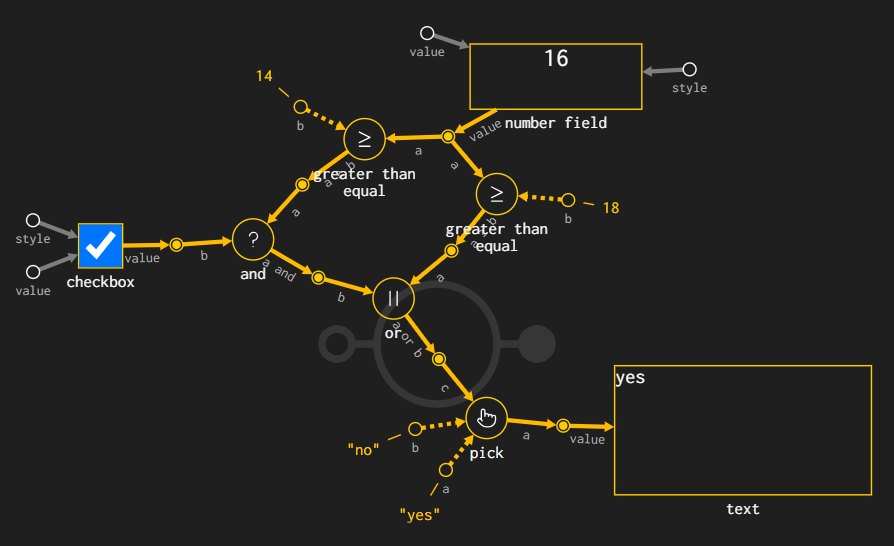🤔 Backends at any scale in 100x less code 🎥 Unit by Samuel Timbó
Devlog Together
A little bit of Rules as Code in Unit: "a person can write a will if they are 18 or at least 14 and in the military". The checkbox indicates if they are military, the number field is their age, and the text field is the answer to whether they can write a will. What's interesting is that the diagram illustrates the reasons. If they qualify both ways, both paths are yellow.



[x] Change Month and Week Number
[x] focWeekExport "2023-01-19" "2023-01-26"
[x] Update Search Index
[x] Download New Attachments
[x] Update links
[x] Check that comment links work (push weekly dump with channel summaries)
[x] Check to mention right person for moved messages
[ ] Summary
[ ] Hashtags
[ ] Set title in newsletter
https://tinyletter.com/
https://tinyletter.com/marianoguerra/letters/
http://localhost:8000/history/
https://marianoguerra.github.io/future-of-coding-weekly/
https://stackedit.io/app#